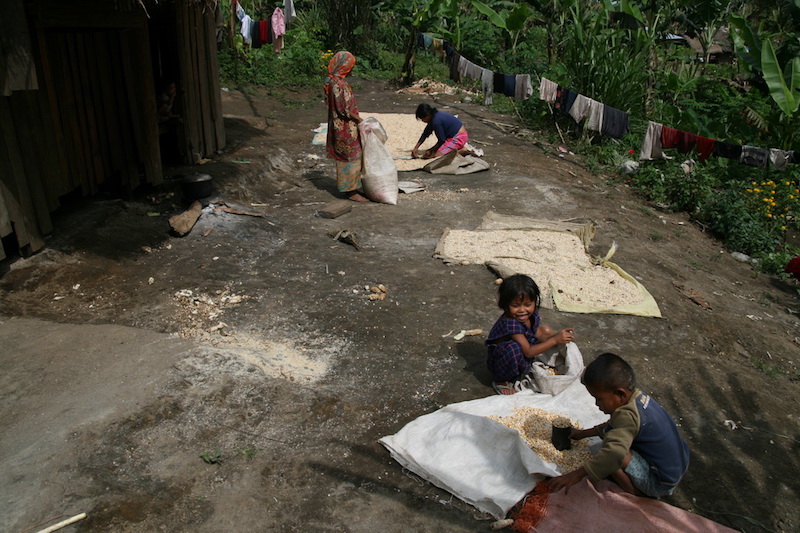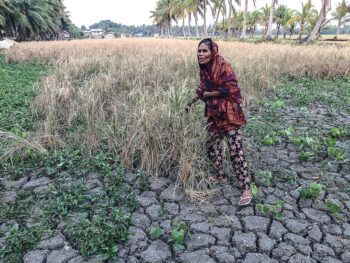DAVAO CITY (MindaNews / 05 April) – They used to borrow money from traders to finance their vegetable farms, and most of their income went to pay for their debts. After going into coffee production, however, the economic condition of farmers in Sitio Pluto, Barangay Balutakay in Bansalan, Davao del Sur has changed for the better, the leader of a farmers group said.
 A coffee plantation. MindaNews file photo
A coffee plantation. MindaNews file photo
“We no longer rely on our financiers because we finance the maintenance of our farms and we can buy whatever we want,” Marivic C. Dubria, manager of Balutakay Coffee Farmers Association (BACOFA) said.
She said the women in their community spent most of their time outside their homes attending to their vegetables farms befor,e but now they stay indoors, sorting coffee beans.
Composed of 78 farmers, she said BACOFA aims to increase their production this year to meet the demand from new buyers who like the quality of their coffee beans.
Sitting on a 400-hectare site on the foothills of Mt. Apo, Dubria said Balutakay’s elevation and mineral-rich soil and ample cloud cover is suited to growing coffee.
A former daycare teacher, Dubria resigned to become a full-time coffee grower, joined seminars on growing and cupping, and started coffee processing in their home two years ago upon seeing the growing demand for the crop.
The group plans to put up centralized processing for all farmers to consolidate their stock to supply 1,200 kilos of specialty beans for 10 new local buyers and another 2,600 kilos for Japanese buyers at P500 a kilo. This is aside from the existing 3,000 kilos a month sold to local buyers.
Dubria said they met with the 10 new local buyers during the business-to-business session at the Philippine Coffee Conference on March 20 to 21, 2018 in Baguio City.
Two Arabica coffee entries from BACOFA won 2nd and 6th places in the Philippine Coffee Quality Competition 2018.
Thelonious Trimmell, chief of party for the Mindanao Productivity in Agricultural Commerce and Trade, said specialty coffee growers must increase their production capacity in order to seize the huge market opportunity in China and India.
“With huge population centers and growing interest in high value specialty coffee, it’s a huge opportunity for Philippines to position itself,” Trimmell said in an interview.
Some regions in these two countries grow coffee but the growing demand coupled with a huge population requires them to import coffee to close the market gap, he said.
He also mentioned South Korea and Japan, US and Australia as potential markets for specialty coffee from the Philippines, which also faces a production problem as it imports 85 to 90 percent of its coffee.
Based on data released by the Philippine Statistics Authority, in 2016, the country’s production of Arabica decreased to 16,755 metric tons (MT) from 17,433 MT in 2015;Robusta to 47,299 MT from 49,847 MT; Excelsa to 4,268MT from 4,546 MT; and Liberica to 499 MT from 514 MT.
Trimmell said industry players have seen a huge potential for high-grade specialty coffee beans in the country in that efforts have been undertaken to revive the industry.
Coffees grown in the country, especially those in Mindanao, have the potential to be categorized as “specialty” if farmers are equipped with technical knowledge on growing and processing, he said.
“The market is growing both in specialty market or just the coffee market in general. Unfortunately with disease, climate issues, the production in the international is maintaining or declining in some countries. There’s a need to fill that gap in production and demand,” Trimmell said. (Antonio L. Colina IV/MindaNews)
